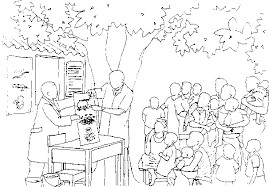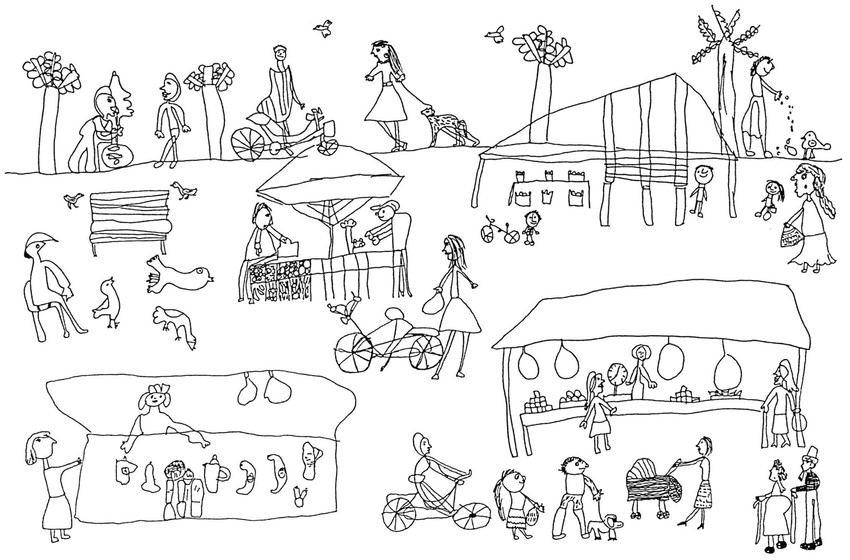Empowering the indigenous self-governance organizations and vibrant community-based institutions for leading indigenous community development interventions as well as policy-level interventions through a bottom-up approach on the community issues forms the basis of true governance. Engaging the tribal community in development policies and programmes for protecting, providing and promoting indigenous knowledge and traditional customs and practices upholding the women-based community groups for gender equality are the actions that lead to building strong institutions and promoting gender equality. It is the involvement of the community in the decision-making and policy framing process that will build a strong economy providing peace and justice to all ending poverty and hunger. Strengthening of institutions favouring local governance will promote gender equality; provide adequate educational facilities which will result in all round development of the community. Systematic growth will lead to help their climate conditions which will develop responsible consumption and production chain to balance the ecosystem.
Steps towards realizing the concept of Swaraj
Indigenous communities have always considered the Earth as their mother, valuing its protection and creation rather than exploiting its resources. They have seen themselves as protectors, transcending notions of color, race, gender, religion, etc. Living in complete harmony against any discrimination, their life philosophy has revolved around linguistic, and cultural diversity, rights of self-determination, and a belief in coexistence, equality, community, simplicity, participation, and harmony as the philosophical foundation for life. Instead of individual empathy and self-awareness, there has been a strong focus on collective experience with powerful vocal music. Over time, a decline in forest areas, significant market-oriented and business-oriented development policies, and the resulting scarcity of local crops like maize, kanji, ragi, cheena, kutki, and sanwa, as well as a shortage of crops like moong, arhar, chana, tuar, etc., at the local level, have affected the livelihood system of the indigenous people. Consequently, they are gradually leaving to meet other needs under the indigenous community, resulting in a lack of stability in the lives of children and their early transition into the workforce, often as child laborers. The impact of their weakened nutritional quality is reflected in the rising levels of malnutrition among women and children in the community, who are gradually losing their grip on their traditions, culture, and natural resources, moving towards dependence. To address the negative effects of food insecurity on future generations, i.e., the children of this community, it is essential to increase awareness in the community so that people are inspired positively to save and continue their traditions and practices. By revitalizing and reviving its cultural and natural resources, the community can gradually reduce its dependence and, with joy, take leadership in its life. In this regard, Vaagdhara has developed a strategic plan for 2023-28 for 1041 villages in Rajasthan, Gujarat, and Madhya Pradesh, creating Gram Swaraj Samooh and Bal Swaraj Samooh as part of an integrated plan.



